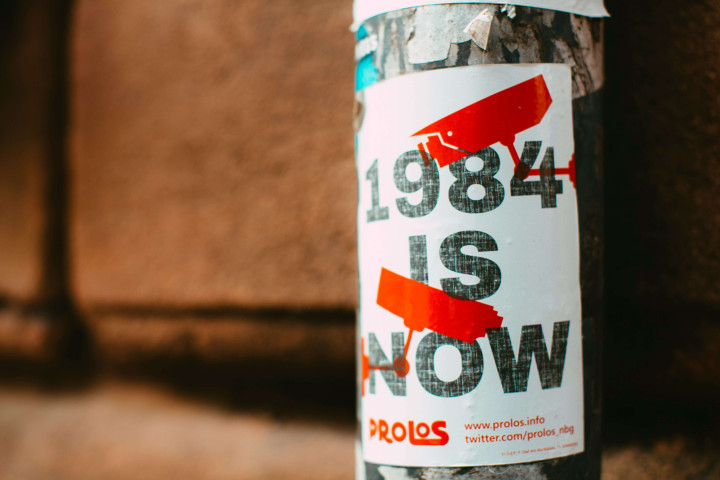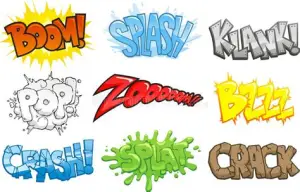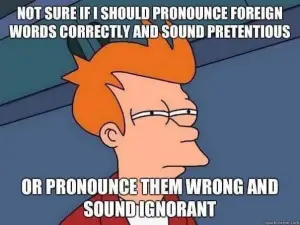
La manipulación de las palabras y realidades en la política
Politics is, per se, a concept related to power and, by extension, to influence and manipulation. The definitions given by the Cambridge Dictionary have to do with those related concepts:
1. the activities of the government, members of law-making organisations, or people who try to influence the way a country is governed;
2. the job of holding a position of power in the government;
3. the study of the ways in which a country is governed;
4. the relationships within a group or organisation that allow particular people to have power over others.
Language is an essential part of the practice of politics, as it is the main medium by which its actors, the politicians, share - and shape - concepts, and address their audience, generally in an attempt to convince (rationally) and persuade (emotionally).
Manipulation can be interpersonal (between individuals) or societal (via institutions or organisations, against groups of people, who in politics are often the voting force especially in the context of a political speech). To Wilson (2005), both types can be considered harmful, because the manipulated people are unable to see the negative within the context, and to van Dijk (2008), ‘it reproduces, or may reproduce, inequality: it is in the best interests of powerful groups and speakers, and hurts the interests of less powerful groups and speakers’.
The concept of political discourse allows politicians to affect people’s knowledge and understanding of both social and political realities in a wider environment. The political community, such as parties, guide the politicians to maneuver themselves and demand them to accomplish particular goals through interaction with their allies and rivals and daily political activity (Kampf, 2015).
Discursive strategies of manipulation - how to convince through language
Manipulation can be interpersonal (between individuals) or societal (via institutions or organisations, against groups of people, who in politics are often the voting force especially in the context of a political speech). To Wilson (2005), both types can be considered harmful, because the manipulated people are unable to see the negative within the context, and to van Dijk (2008), ‘it reproduces, or may reproduce, inequality: it is in the best interests of powerful groups and speakers, and hurts the interests of less powerful groups and speakers’.
Cabrejas Peñuelas (2017) defines manipulation in political discourse as “an illegitimate control by the manipulator over other people” to make them believe that any policies taken are done in people’s best interests when, in fact, the policies only favour the manipulator.
Teun A. van Dijk has studied the linguistic aspect of social/political power in depth, in particular in politicians' speeches (political address), which serve the purpose to influence the population’s beliefs and choices, often against their initial will and interest, which is regarded as manipulation. El Hussari (2010) details this idea of manipulation in speech (on a national scale) as a powerful tool to obtain advantages, maintain power, and avoid responsibility. Lihua (2012), Ali and Omar (2016) also shows that it serves the purpose to alter the audience’s knowledge, beliefs and attitude. Sustained by the media, the dissemination of manipulated information in speeches can be widely expanded to outreach more recipients.
Ideological polarisation
Ideological polarisation is portrayed in the Us/Them polarisation (McCoy et al., 2018). Through polarisation, the speakers are given the opportunity to divide people into an ingroup representing friends and allies (us) and an outgroup referring to enemies (them) (van Dijk, 2006), especially in the discourses of ‘group conflict or competition’. It plays on beliefs and attitudes, and inspires trust towards the ‘good side’ (the ingroup) or mistrust towards the ‘bad side’ (the outgroup).
In 1998, Teun A. van Dijk ‘proposed the theoretical framework of an ideological square to uncover the discursive reproduction of the ideology of positive us and negative them’; this was completed by Win Zaho’s work in 2021:
Express/emphasize information that is positive about Us: Duties claimed by us as a result of self-motivation;
Express/emphasize information that is negative about Them: Other’s faults;
Suppress/de-emphasize information that is positive about Them: Other’s duties upon request;
Suppress/de-emphasize information that is negative about Us: Exemption of our faults.
Self-legitimisation
Marwa Adel Abuelwafa (2021) states that ‘legitimization is the process through which certain ideologies are made legitimate within the norms and values of a given society. It is a process by which certain events or actions are normalized by virtue of the authority one holds. Through legitimization practices, politicians are provided with the means of offering implicit reasons to complete their actions through using certain discursive tools.’
Legitimation is highly associated to politics and is mainly a core and heart notion in political issues (Wodak, 2001)
The below sub-sections of legitimisation are based on Theodoor Jacob "Theo" van Leeuwen’s theory:
Authorisation
This strategy is based on using a “higher authority”, or at least recognised authority, to make one’s arguments acceptable and irrefutable. There are 6 categories of authorities: personal, expert, role model, impersonal, tradition and conformity authorities.
For example, Trump uses a lot of personal authorisation, using in particular wit the excessive use of the pronoun I. ‘The same goes on for the employment of legitimation through expert authorization where Trump calls upon the Congress Senators who stand by his side denouncing the elections, thus seeking further legitimation.’ (Abuelwafa 2021)
Moral legitimation
It comprises three sub-divisions: evaluation, abstraction and analogies.
Evaluation is made on basic qualities of actions or objects, based on their opposition to accepted values.
Abstraction gives an abstract dimension to ideas, mainly through metaphors.
Analogies are comparisons, where ‘moral legitimation takes place via juxtaposing an action through another and associating it with either positive or negative values.’ (Abuelwafa 2021)
Rationalisation
Rationalisation is ‘an attempt to find reasons for behaviour, decisions, etc., especially your own’ (Cambridge dictionary).
Abuelwafa explains that legitimation is achieved ‘through reference to aims or goals, means and effects of established social actions’. It also includes reference to ‘the knowledges that society has constructed to endow them with cognitive validity’ (Van Leeuwen, 2008: 106)’.
In the case of Trump’s discourse, it was ‘instrumental to magnify the results of defrauding the elections or theoretical to gain legitimation through presenting the facts and numbers of the votes he was denied.’ (Abuelwafa 2021)
In this aim to rationalise, a method is particularly efficient for politics: adducing seemingly irrefutable proofs of their beliefs and reasons: a reasonable argument can work to construct another argument by offering information that seems impossible to deny. To Lippi and Torroni (0216), arguments with subjective and possibly controversial statements are automatically extracted to provide structured data for models of arguments and reasoning. 'As a discursive manipulative strategy, adducing an argument offers to support the speaker’s belief and reason.’ (Abuelwafa 2021)
Mythopoesis
Mythopoesis consists of moral and cautionary narratives. The first promote legitimate institutionalised practices, and the latter warns against the consequences that happen if people do not follow or conform to the norms of social practices. ‘This framework offers a variety of options to show how power, legitimation and discourse analysis are intertwined.’ (Abuelwafa 2021)
Delegitimisation of the opposite stance
After showing themselves off to their advantage, manipulative speakers focus on delegitimizing their opponents, marking the biggest contrast possible between their positive self-presentation and their opponents negative (and inferior) depiction.
‘Using the notion of responsibility as blame has been widely applied in politics-related discourses to construct and normalise the negative them’ (Zaho 2021). Hansson (2015) confirms this practice by observing that avoiding denial and accusations of misconduct along with shifting blame can point to another intricate way of discrediting others. Schroeder (2008) compares it to the discourse of hysteria, ‘where the negative and terrible effects of something are explicitly intensified, foregrounded and contrived in order to prove the otherwise as legitimate’. To specifically discredit the others, President Trump and President Bolsonaro exploited this notion by displaying Us/Them polarisation, vilifying the other, using the communicative acts, and attacking the other’s characteristics (Kakisina et all. 2022).
Alain Denealt explains in Le langage au service des puissants ? (ThinkerView podcast) that political discourse often presents two choices: being on the ‘good side’ or the ‘wrong side’, the good side being the politician / party and their ideology. Anyone who disagrees with their ideas is categorised as marginal, extremist, ignorant, with negative (even problematic) values and morality.
Wording choices that make the difference
Linguistic manipulation strategies are numerous; a quick overview thanks to Hancock et al. (2007) and van Dijk (2017) gives us some pertinent examples:
Speech acts
Rhetorical speech, in particular with numbers game rhetoric
Formal speech
Specific intonation, volume, speed and tone
Producing more words
Using more third-person pronouns
Lexical derogation, lexicalisation
Metaphors
Manipulative uses of pragmatic markers in political discourse
Péter Furkó (2014) studied the use of pragmatic markers (PrM) in corpora of political discourse according to their type, to identify their specific use in the politician’s intent to influence and manipulate (via suppression, polarization, recontextualising and conversationalisation). ‘It is important to point out that a single PrM can serve several manipulative functions, while a manipulative strategy might be realised by a variety of pragmatic items. Consequently an onomasiological approach to the functional spectrum of a set of PrMs is vindicated.’
Evidential markers
They’re PrM that ‘signal the degree of confidence, positive or negative, weakly or strongly, held by the speaker about the truth of the basic message’ (Fraser, 1996), and that ‘indicate a speaker’s attitude regarding the validity of certain information, for example, whether it is certain, probable, or untrustworthy’ (Nuckolls, 1993). In addition to marking the source and the reliability of information and knowledge (Ifantidou, 2001), they may also indicate how knowledge or information was acquired, for example, through personal experience, inference, or report (Nuckolls, 1993).
Example: “of course”: Furkó explains that, unlike in celebrity interviews or spontaneous conversations where of course can ‘express strong agreement with the interlocutor’s previous utterance (‘emphatic yes’ function, cf. Lewis, 2006), while in other contexts it marks topic shifts, evaluations in narratives as well as the end of a lis’, ‘in political news interviews the range of functions of course fulfils is markedly different from its use in the other two discourse types’:
1. To anticipate an opposing viewpoint, and/or the audience’s objections
2. To background propositions that were previously foregrounded by the previous speaker
‘As for the heteroglossic function of of course, Simon-Vandenbergen et al. conclude that of course confirms solidarity with the like-minded, construes solidarity with those who need to be persuaded, and, at the same time contributes to the image of the speaker being “in the know”, thus giving the speaker “a temporary advantage in the battle for scoring with the audience” (Simon-Vandenbergen et al., 2007: 66). In other words, IEs exploit the multifunctionality of of course by influencing the assumptions of different segments of the audience simultaneously, addressing a range of alternative viewpoints about particular political themes.’
General extenders
1. They might imply that there is more to be said on a certain issue than the speaker has time to say in the interview, while the speaker actually only enunciates one argument or example.
2. They can be used to downplay alternative viewpoints and policies and thus, similarly to evidential markers, provide ways of manipulating the mutual cognitive environment shared by the first-frame and second-frame participants in the interview.
Quotation markers
They are used to decontextualise and recontextualise texts, legitimise opinions and polarise the audience. They have a function of voicing where manipulation is implicit.
Other manifestations of manipulation: conversationalisation and the exploitation of ambiguity
The conversationalisation of mediatised political discourse is a manipulative intent ‘ reflected by the frequency and distribution of PrMs in political interviews’.
‘Fetzer and Weizman (2006), for example, state that “politics has undergone dramatic changes [in that] the primarily monologue-oriented mode of discourse, which prevailed in the fifties, sixties, seventies and eighties, is no longer considered to be appropriate in the western and Anglo-American contexts” (Fetzer and Weizman, 2006). Sandova (2010) observes that politicians use conversational style in an effort to impress their audience, and to be able to influence them more easily. Fairclough (1995) argues that conversationalisation is a type of marketization of ideologies and has a specific (hidden) consensus-building effect (Fairclough, 1995).’
Convincing with facts, persuading with emotions
Originally, those two verbs distinguished the way someone (or an organisation/institution) influences people: convincing corresponds to making someone believe something via rational arguments (facts) while persuading corresponds to making someone believe something via irrational arguments (emotions).
The polarisation and in particular legitimation strategies mostly work via convincing, but political discourse also includes a lot of persuasion, where emotions are usually mixed.
Kakisina et al. develop this idea: ‘Showing emotional appeals is considered vulnerable in political discourse. However, the notion gives access to the speaker to manipulate the recipient into thinking that the speaker understands, shares, and relates to their attitude, desire, and emotions. By that means, recipients often believe and behave upon the manipulated information without fact-checking them (Blass, 2005). To appeal to the recipients’ attitudes and emotions, the speaker makes use of authoritative sources. Through rhetoric, explicit and implicit information, figures, and photographs, people’s emotions can be provoked (Higgins & Walker, 2012). Inappropriately displaying strong emotional appeals elicits the manipulation of the recipients' emotions and feelings, which are labelled as pathos (Brown et al., 2012).’ Along with positive self-presentation and rhetorical figures, it emotionalises the politicans’ argument over logical evidence to win the emotional reaction from the recipients.
Case-study: The Covid crisis
Most governments in the world had a discourse that went against the scientific research already established for years, and used this polarisation strategy to legitimate measures that would have been absurd and unacceptable in other contexts and with the correct scientific information, as well as emotional manipulation (causing general fear); on the other side, they delegitimised the opposite stance, often represented by scientists. The whole process was, again, helped by the media and their decisions in public speakers' exposure, wording, selected information and sensational news presentation using the emotional dimension of manipulation.
Kalkisina et al. studied the political political speeches about COVID-19 pandemic delivered by Donald Trump and Jair Bolsonaro. ‘The findings show that the manipulation in both speeches is delivered through ideological polarization, discrediting the others, emotionalizing the argument, emphasizing the power, moral superiority and credibility of the speaker, and adducing seemingly irrefutable proofs of the speaker’s beliefs and reasons. Polarization can indoctrinate a community with shared beliefs and values because of its close relation with particular ideology and belief. These findings add to a growing body of work on discursive manipulation, suggesting that political discourse can be a potential source of societal manipulation. Most importantly, these results draw a point whereby ideological polarization is the most effective and prevailing category while adducing seemingly indisputable proofs of the speaker’s beliefs appears to be less compelling.’
Jean-Dominique Michel explains how the French government accused a part of the population of threatening the rest, using a typical polarisation strategy where the good side is the population that obeyed the government’s directives while the bad side is the part that refused to do so. It also confirms the various studies findings about shifting the blame to others in order to manipulate the audience’s beliefs for a positive view and attitude towards the manipulator (government) and their stance.
In the USA, Rochelle Walensky, CDC director (Centers for Disease Control and Prevention), received reports in January 2021 stating that being vaccinated against Covid-2019 doesn’t prevent against transmitting it to others, however in the next 8 months she publicly said (on TV) that only vaccination protects from contaminating others. The same lies were told in France by the Scientific Council and in Switzerland by the Federal Office of Public Health. This corresponds to the authorisation legitimation strategy described earlier in this article using a higher Scientific institution to prove a fact, even if in this case the fact was incorrect).

Changing the vocabulary to change the concepts and thoughts
Franck Lepage shares an interesting example of terminology shift that serves a political purpose in his conference. The use of different terms to refer to the poor/exploited classes changes the perspective and even definition of the status of that person: from victim of a structure and social group to unlucky or even lazy person who cannot or even doesn’t want to participate in the society’s structure.
Similarly, George Lakoff shows how perspective influences the discourse’ reception by the population once a term is changed into another, with the example of “regulation” used instead of “protection” in this interview.
Clément Viktorovitch qualifies as “perversion” the extreme use of this strategy, where one uses a term to express its total opposite.
The concept of New English in Orwell’s 1984 is based on the same idea: removing words to remove concepts (democracy etc.), and more generally reducing the language to reduce the actual thoughts, and the capacity to question concepts and reality.

Almost a century before Orwell’s work, Karl Marx laid the foundations of this reflection about thought control, not to the literal idea of a police control like in 1984 of course but the often implicit and subconscious influence of the ruling class and their ideas.
‘The ruling ideas are that of the ruling class’
According to Herbert Marcuse (1964), in the absence of a specific context of high discontentment in the population, there is a lack of opposition to the ruling ideas in the advanced industrial society, leading to a one-dimensional universe of thought and behaviour, in which aptitude and ability for critical thought and oppositional behaviour disappear.
Note: The use of language to influence concepts and thoughts can be extended to the general phenomenon of ideology manipulation, aided by the media. ‘Political figures who have power in society can control group knowledge by dominating the access of public and non-public discourse and determining which kind of information will be given to the public through the mass media (van Dijk 2012). All of these unjustified dominations may subsequently lead to the manipulation of public knowledge and indirect control of the minds and actions of the public.’ (Kakisina et al. 2022)
References
Abelwuafa, M. A. (2021) Legitimation and Manipulation in Political Speeches: A Corpus-based Study, Procedia Computer Science 189:11–18. Available: https://www.sciencedirect.com/science/article/pii/S1877050921011510
Abid RZ. and Manan SA. (2016) Constructing the “self” and the “other” in Bush’s political discourse before and after the Iraq war (2002–2008). Journal of Language and Politics 15(6): 710–726. DOI: 10.1075/jlp.15.6.03abi.
Ali M. A.., Omar A. (2016). Discourse and manipulation in the representation of the Russian military intervention in the Syrian Civil War. International Journal of Linguistics, 8(3), 129–140.
Allott N. (2005) The role of misused concepts in manufacturing consent: A cognitive account. In: deSaussure L and Schulz P (eds). Manipulation and Ideologies in the Twentieth Century. John Benjamins: Amsterdam, the Netherlands, pp 147–168.
Angermuller J. (2014) Post-structuralist Discourse Analysis - Subjectivity in Enunciative Pragmatics. Palgrave Macmillan: Basingstoke, Houndmills, UK.
Armasu VD. (2013) The Concept of Politeness in Everyday and Professional Discourse. PhD dissertation, Babes-Bolyai University. http://193.231.20.119/doctorat/teza/fisier/1427, accessed 15 January 2016.
Badawy A., Ferrara E., Lerman K. (2018, August 28–31). Analyzing the digital traces of political manipulation: The 2016 Russian interference Twitter campaign. In 2018 IEEE/ACM international conference on advances in social networks analysis and mining (ASONAM), Barcelona, Spain.
Becker A. (2007) Are you saying…? A cross-cultural analysis of interviewing practices in TV election night coverages. In: Fetzer A and Lauerbach GE (eds). Political discourse in the media. John Benjamins: Amsterdam, The Netherlands, pp 139–162.
Bivins T. (2006) Responsibility and accountability. In: Fitzpatrick K and Bronstein C (eds) Ethics in Public Relations: Responsible Advocacy. Sage, pp. 19–38.
Blackledge A. (2005) Discourse and Power in a Multilingual World. Discourse Approaches to Politics, Society and Culture. Amsterdam and Philadelphia: John Benjamins Pub.
Blakemore D. and Gallai F. (2014) Discourse markers in free indirect style and interpreting. Journal of Pragmatics; 60, 106–120.
Bramley NR. (2001) Pronouns of Politics: the use of pronouns in the construction of ‘self ’ and ‘other’ in political interviews. PhD dissertation, Australian National University. https://digitalcollections.anu.edu.au/bitstream/1885/46225/5/01front.pdf, accessed 10 August 2016.
Cabrejas-Peñuelas A. B. (2017) Manipulation as an ideological tool in the political genre of parliamentary discourses. Pragmatics, 27(2), 207–234. https://doi.org/10.1075/prag.27.2.02cab
D’Errico F., Poggi I., Vincze L. (2012) Discrediting signals. A model of social evaluation to study discrediting moves in political debates. Journal on Multimodal User Interfaces, 6(3–4), 163–178. https://doi.org/10.1007/s12193-012-0098-4
de Saussure L. (2007) Pragmatic issues in discourse analysis. Critical Approaches to Discourse Analysis Across Disciplines; 1 (1): 179–195.
Downing A. (2009) Surely as a marker of dominance and entitlement in the crime fiction of P. D. James. Brno Studies in English; 35 (2): 79–92.
El-Hussari I. A. (2010). President Bush’s address to the nation on US policy in Iraq. In Okulska U., Cap P. (Eds.), Perspectives in politics and discourse (Vol. 6, pp. 99–118). John Benjamins.
Erman B. (1987) Pragmatic Expressions in English: A Study of “You Know”, “You See” and “I Mean” in Face-to-Face Conversation. Almqvist & Wiksell International: Stockholm, Sweden.
Erskine T. (ed.) (2003a) Can Institutions Have Responsibilities? Collective Moral Agency and International Relations. Global Issues. Basingstoke: Palgrave Macmillan.
Erskine T. (2003b) Introduction: Making sense of ‘responsibility’ in international relations- Key questions and concepts. In: Erskine T (ed.) Can Institutions Have Responsibilities? Collective Moral Agency and International Relations. Basingstoke and New York: Palgrave Macmillan, pp. 1–16.
Fairclough N. (1995) Media Discourse. Edward Arnold: London.
Fairclough N. (2018). CDA as dialectical reasoning. In Flowerdew J., Richardson J. E. (Eds.), The Routledge Handbook of Critical Discourse Studies (pp. 13–25). Routledge.
Fetzer A. (2000a) Contextualization cues: More- and less-fuzzy hedges, discourse markers and interpersonal markers. Discourse Particles, Modal and Focal Particles and all that stuff … An International Conference on Particles. Linguistic Society of Belgium: Brussels.
Fetzer A. (2000b) Negotiating validity claims in political interviews. Text; 20 (4): 1–46.
Fetzer A. (2007) Challenges in political interviews: An intercultural analysis. In: Fetzer A and Lauerbach GE (eds). Political Discourse in the Media. John Benjamins: Amsterdam, The Netherlands, pp 163–192.
Fetzer A. (2014) I think, I mean and I believe in political discourse: Collocates, functions and distribution. Functions of Language; 21 (1): 67–94.
Fetzer A. and Weizman E. (2006) Political discourse as mediated and public discourse. Journal of Pragmatics; 38 (2): 143–153.
Fischer K. (ed) (2006) Approaches to Discourse Particles. Elsevier: Oxford.
Fowler R., Hodge B., Kress G. and Trew T. (1979) Language and Social Control. Routledge: London.
Fraser B. (1996) Pragmatic markers. Pragmatics; 6 (2): 167–190.
Fraser B. (1999) What are discourse markers? Journal of Pragmatics; 31 (7): 931–952.
Furkó BP. (2007) The Pragmatic Marker -Discourse Marker Dichotomy Reconsidered: The Case of 'Well' and 'Of Course'. Debrecen University Press: Debrecen, Hungary.
Furkó BP. (2013) The functional spectrum of pragmatic markers in political news interviews and celebrity interviews. Topics in Linguistics; 11, 13–21.
Furkó BP. and Abuczki Á. (2014) English discourse markers in mediatised political interviews. Brno Studies in English; 40 (1): 45–64.
Furkó BP., Kertész A and Abuczki Á (forthcoming) Discourse markers in different types of reporting. In: Capone A (ed). Indirect Reports - Perspectives in Pragmatics, Philosophy and Psychology. Springer Verlag: Heidelberg, Germany.
Furko, P. (2017) Manipulative uses of pragmatic markers in political discourse. Palgrave Commun 3, 17054. https://doi.org/10.1057/palcomms.2017.54. Available: https://www.nature.com/articles/palcomms201754
Hancock J. T., Curry L. E., Goorha S., Woodworth M. (2007). On lying and being lied to: A linguistic analysis of deception in computer-mediated communication. Discourse Processes, 45(1), 1–23. https://doi.org/10.1080/01638530701739181
Hansson S. (2015). Discursive strategies of blame avoidance in government: A framework for analysis. Discourse & Society, 26(3), 297–322. https://doi.org/10.1177/0957926514564736
Hashim S. S. M., Safwat S. (2015). Speech acts in political speeches. Journal of Modern Education Review, 5(7), 699–706.
Hill JH. (1999) Read my article: Ideological complexity and the overdetermination of promising in American presidential politics. In: Kroskrity PV (ed). Regimes of Language: Ideologies, Polities, and Identities. School of American Research Press: Santa Fe, NM, pp 259–291.
Ho V. (2013) Strategic use of nouns and pronouns in public discourse: The case of the fine-tuning of the medium of instruction policy in Hong Kong. Pragmatics; 23 (1): 51–67.
Holmes J. (1988) Of course: A pragmatic particle in New Zealand women’s and men’s speech. Australian Journal of Linguistics; 2, 49–74.
Irimiea S (2010) Rhetorical and comparative study of the victory speeches of Barack Obama and Mircea Geoana. JoLIE; 3, 41–53.
Kakisina, P. A., Indhiarti, T. R., & Al Fajri, M. S. (2022). Discursive Strategies of Manipulation in COVID-19 Political Discourse: The Case of Donald Trump and Jair Bolsonaro. SAGE Open, 12(1). https://doi.org/10.1177/21582440221079884. Available: https://journals.sagepub.com/doi/10.1177/21582440221079884
Kantara A (2012) Adversarial challenges and responses in greek political interviews: A Case Study. Critical Approaches to Discourse Analysis across Disciplines; 5 (2): 171–189.
Karimi M., Tabrizi H. H. (2015) Critical discourse analysis of two letters of complaint and manipulation of people in power. Mediterranean Journal of Social Sciences, 6(4), 486. https://doi.org/10.5901/mjss.2015.v6n4s2p486
Lauerbach G. (2006) Discourse representation in political interviews: The construction of identities and relations through voicing and ventriloquizing. Journal of Pragmatics; 38 (2): 196–215.
Lippi M., Torroni P. (2016). Argument mining from speech: Detecting claims in political debates. Proceedings of the AAAI conference on artificial intelligence. Phoenix, AZ, United States.
Marcuse H. (1964) One-Dimensional Man. Beacon Press
Martin J. (2015) Situating speech: A rhetorical approach to political strategy. Political Studies, 63(1), 25–42. https://doi.org/10.1111/1467-9248.12039
McCoy J., Rahman T., Somer M. (2018). Polarization and the global crisis of democracy: Common patterns, dynamics, and pernicious consequences for democratic polities. American Behavioral Scientist, 62(1), 16–42. https://doi.org/10.1177/0002764218759576
McNair B. (2011) An Introduction to Political Communication. Routledge: London.
Metawe M. (2020) Populism and domestic/international politics: theory and practice. Review of Economics and Political Science. Advance online publication. https://doi.org/10.1108/REPS-11-2019-0146
Orwell, G. (1949) 1984. Secker & Warburg: London.
Reisigl M and Wodak R. (2001) Discourse and Discrimination: Rhetorics of Racism and Antisemitism. London: Routledge.
Roselle L., Miskimmon A. and O’Loughlin B. (2014) Strategic narrative: A new means to understand soft power. Media, War & Conflict 7(1): 70–84. DOI: 10.1177/1750635213516696.
Rubio-Carbonero G and Zapata-Barrero R. (2017) Monitoring discriminatory political discourse on immigration: A pilot study in Catalonia. Discourse & Society 28(2): 204–225. DOI: 10.1177/0957926516685464.
Sandova J. (2010) Speaker's involvement in political interviews. MA thesis, Masarykova University: Brno, Czech Republic.
Simon-Vandenbergen A. (1988) What really really means in casual conversation and in political interviews. Linguistica Antverpiensia; 22, 206–225.
Simon-Vandenbergen A. (1992) The interactional utility of of course in spoken discourse. Occasional Papers in Systemic Linguistics; 6, 213–226.
Simon-Vandenbergen A., White PRR and Aijmer K. (2007) Presupposition and ‘taking-for-granted’ in mass communicated political argument: An illustration from British, Flemish and Swedish political colloquy. In: Fetzer A and Lauerbach GE (eds). Political discourse in the media. John Benjamins: Amsterdam, The Netherlands, pp 31–75.
Tong J and Zuo L. (2019) Othering the European Union through constructing moral panics over ‘im/migrant(s)’ in the coverage of migration in three British newspapers, 2011–2016. International Communication Gazette 81(5): 445–469. DOI: 10.1177/1748048518802237.
van Dijk TA. (1992) Discourse and the denial of racism. Discourse & Society 3(1): 87–118.
van Dijk T. A. (2001). Discourse, ideology and context. Folia Linguistica, 35(1–2), 1–2.11. https://doi.org/10.1515/flin.2001.35.1-2.11
Van Dijk, T. (2005) “War Rhetoric of a Little Ally: Political Implicatures and Aznar’s Legitimization of the War in Iraq.” Journal of Language and Politics 4(1): 65–91.
van Dijk T. A. (2006a) Discourse and manipulation. Discourse & Society, 17(3), 359–383. https://doi.org/10.1177/0957926506060250
van Dijk T. A. (2006b) Politics, ideology, and discourse. In Brown K. (Ed.), Encyclopedia of language & linguistics (2nd ed., pp. 728–740). Elsevier.
van Dijk T. (2008) Discourse and Power. Palgrave Macmillan: New York.
van Dijk T. A. (2012) Knowledge, discourse and domination. In Meeuwis M., Östman J.-O. (Eds.), Pragmaticizing understanding: Studies for Jef Verschueren (pp. 151–196). John Benjamins Publishing.
van Dijk T. A. (2015) Ideology. In Mazzoleni G. (Ed.), The international encyclopedia of political communication (pp. 1–11). Wiley Blackwell.
van Dijk T. A. (2017) How globo media manipulated the impeachment of Brazilian president Dilma Rousseff. Discourse & Communication, 11(2), 199–229. https://doi.org/10.1177/1750481317691838
Van Leeuwen, T. (2007) “Legitimation in Discourse and Communication.” Discourse & Society 1(1): 91–112.
Van Leeuwen, T. (2008) “Discourse and Practice: New Tools for Critical Discourse Analysis.” Oxford: Oxford University Press.
Wilson J. (2005) Political discourse. In Schiffrin D., Tannen D., Hamilton H. E. (Eds.), The handbook of discourse analysis (pp. 398–415). Blackwell Publishers Ltd.
Wodak R (1989) Language, Power and Ideology. John Benjamins: Amsterdam, The Netherlands/Philadelphia, PA.
Wodak, R. (2001) “The Discourse-Historical Approach.” In R. Wodak, & M. Meyer (Eds.), Methods of critical discourse analysis (pp. 63–94). London, UK: Sage.
Wodak R. (2009) The Discourse of Politics in Action: Politics as Usual. Palgrave Macmillan: New York.
Wright D. and Brookes G. (2019) ‘This is England, speak English!’: A corpus-assisted critical study of language ideologies in the right-leaning British press. Critical Discourse Studies 16(1): 56–83. DOI: 10.1080/17405904.2018.1511439.
Zhao X. (2020) How China’s state actors create a “us vs US” world during Covid-19 pandemic on social media. Media and Communication 8(2): 452–457. DOI: 10.17645/mac.v8i2.3187.
Zhao X. (2021) Understanding the ‘Us Vs Them’ Division Through the Notion of Responsibility. E-International Relations. Available: https://www.e-ir.info/2021/05/25/understanding-the-us-vs-them-division-through-the-notion-of-responsibility/
El rincón de lectura
Para saber más acerca de las lenguas y otros temas vinculados
Un poco de lectura ligera sobre temas lingüísticos, literarios o sociales, ¡venga a echarles un vistazo!

Teorías y reflexiones sobre la traducción

Your perfect tech rider

Sociolingüística: conceptos claves

Language accessibility in live performances

Aprender una nueva lengua

Oportunidades de vivo para artistas emergentes

Fracasos de traducción

Subtitling: use(s) and norms

La localización

Tablón de ofertas laborales en la industria musical

El inglés en Irlanda

Youth Language

Onomatopeyas a través del mundo

Lenguaje y género

El lenguaje tabú

Language attrition

Cuando la comedia se burla de la interpretación

The meme corner - La música

The meme corner - Ser un(a) traductor(a) / intérprete

The meme corner - La lingüística

The meme corner - La traducción

The meme corner - La comida en el mundo

